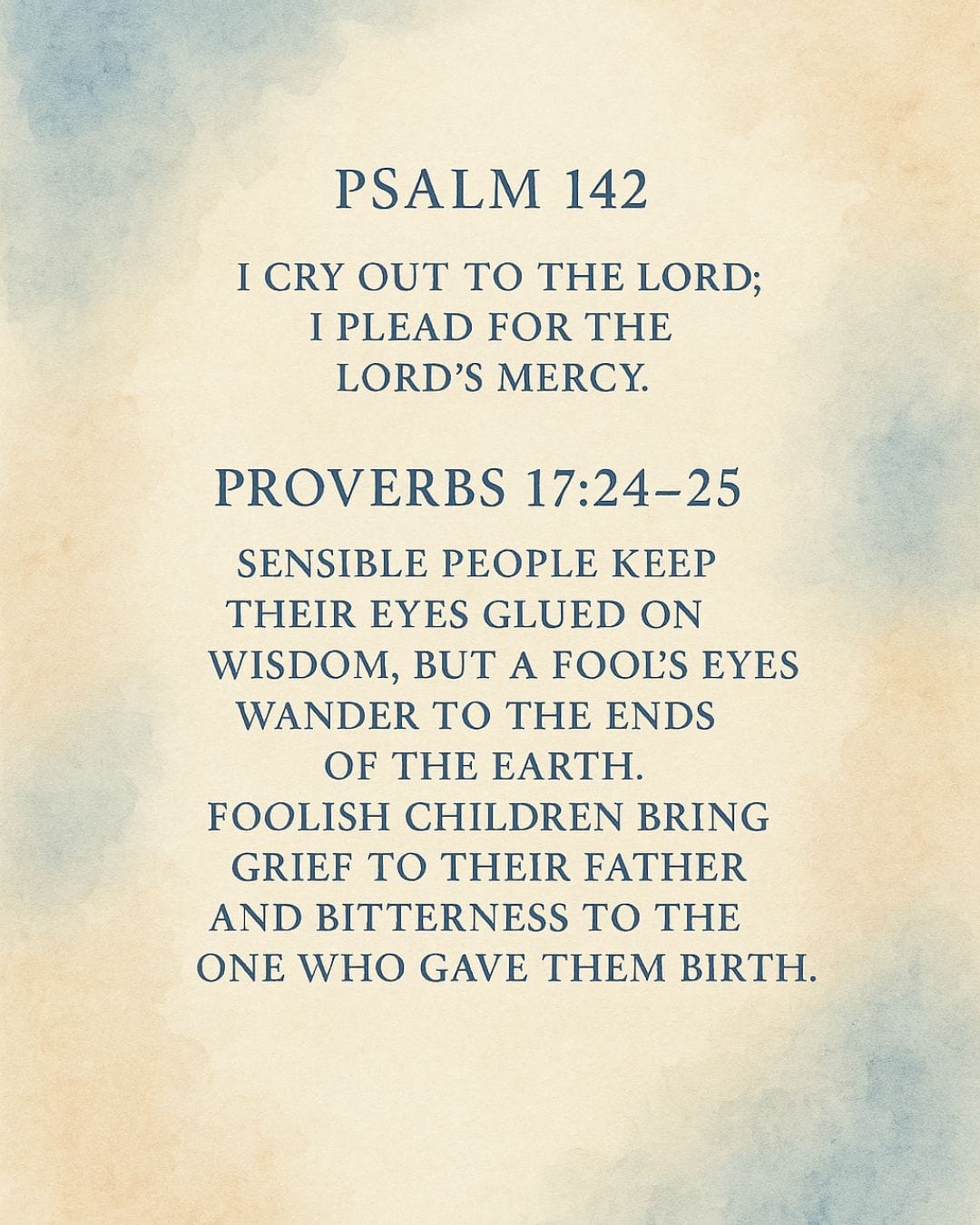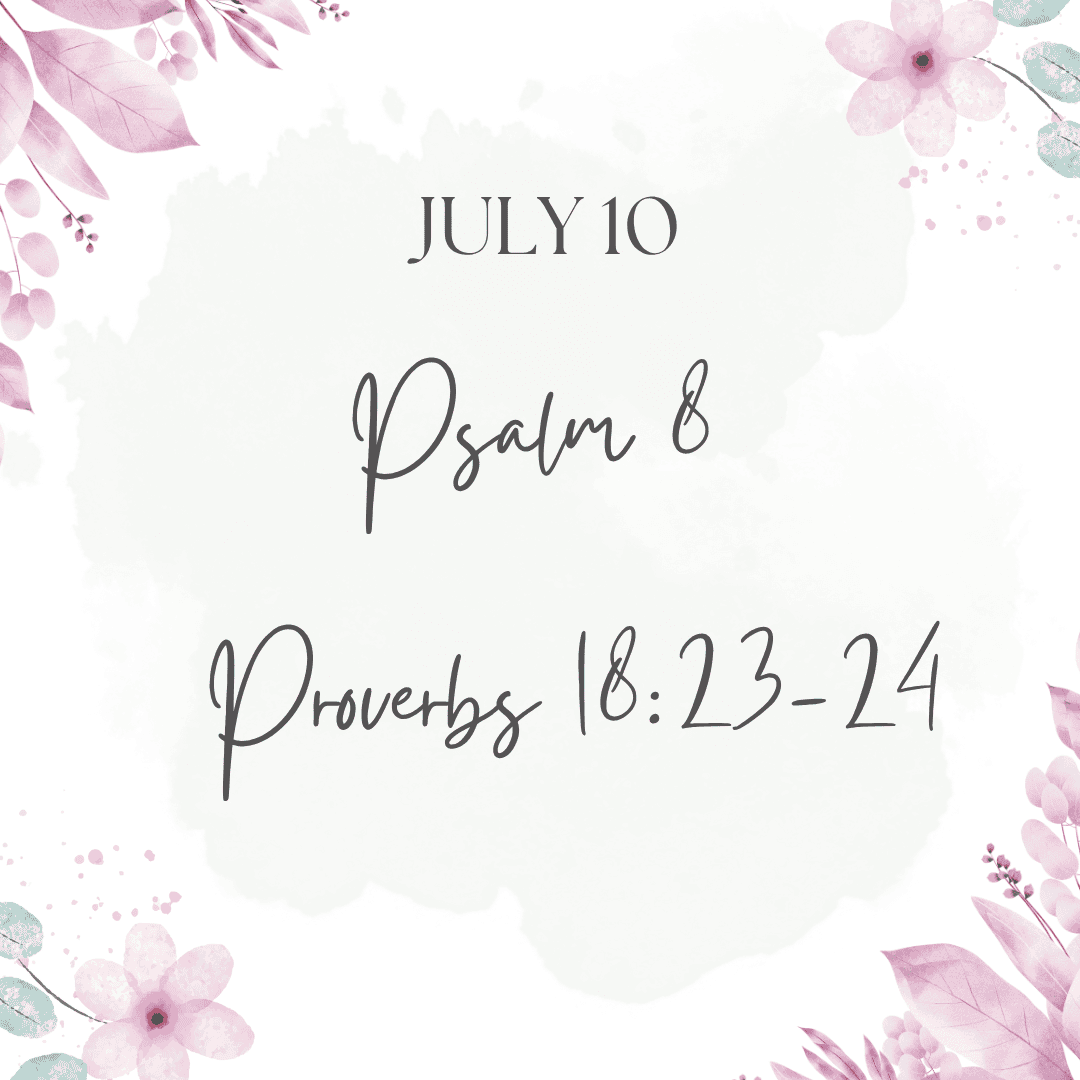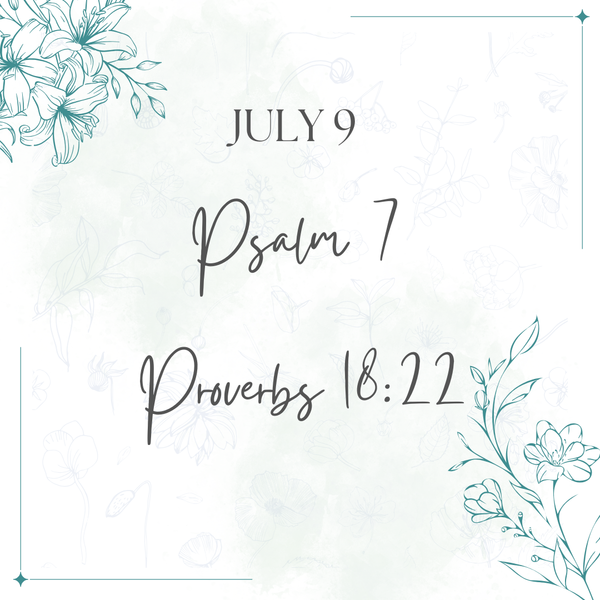June 24 Psalm 142; Proverbs 17:24-25

- In Psalm 142:1–2 (NLT), David says, “I cry out to the Lord; I plead for the Lord’s mercy.” What does this show about how he handles his distress?
- According to verse 3, David says, “When I am overwhelmed, you alone know the way I should turn.” What does this teach us about God's awareness of our inner struggles?
- In verse 4, David says, “No one gives me a passing thought! No one will help me; no one cares a bit what happens to me.” Have you ever felt this way? How did you respond?
- In Psalm 142:5, David says, “You are my place of refuge. You are all I really want in life.” What does it mean to make God your ultimate refuge and portion?
- To whom do you usually complain—people around you, or God? Do you feel that complaining to people helps the situation, or does it sometimes make it worse?
- Psalm 142:6–7 includes a plea: “Bring me out of prison so I can thank you.” What kind of “prisons” might we find ourselves in today, and how can God bring us out?
- In Proverbs 17:24 (NLT), it says, “Sensible people keep their eyes glued on wisdom, but a fool’s eyes wander to the ends of the earth.” What does it look like to “keep your eyes glued on wisdom” in our daily decision-making?
- How might constantly seeking far-off solutions or distractions, like the fool in verse 24, keep someone from living wisely and peacefully?
- Proverbs 17:25 says, “Foolish children bring grief to their father and bitterness to the one who gave them birth.” How do our personal choices affect the emotional well-being of our families?
- How do you plan to integrate part of these Scriptures into your prayers?



